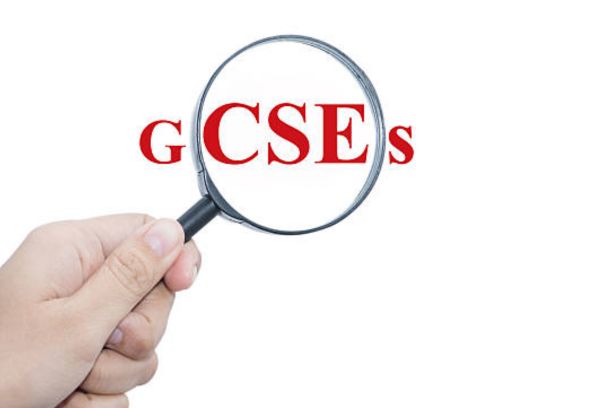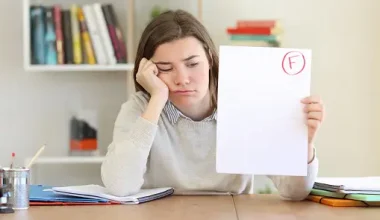If you are in the UK and approaching the end of secondary school, you’ve probably heard a lot about GCSEs. But have you ever thought of the correct writing of it? Is it GCSE or GCSEs?
Sometimes, the correct use of grammar and punctuation can be a bit confusing, and the consideration of whether it’s pronounced GCSE or GCSEs is one of the common dilemmas.
Well, the answer lies in understanding the role of the apostrophe; that little apostrophe can make a big difference in the world of grammar.
This writing promises to clear the confusion about how to write or pronounce GCSE or GCSEs; it will break down the difference between the two terms so that you can focus on preparing for the exams without any punctuation errors.
Table of contents
How Do Possessiveness Work With Acronyms?
Possessiveness with acronyms can be somewhat tricky, but understanding the rules will help you navigate this aspect of grammar effectively.
When an acronym is pluralized, as in the case of “GCSEs” (General Certificates of Secondary Education), you typically add the apostrophe after the “s” without an additional “s” following it. For example, “The GCSEs’ results were impressive.”
However, if the acronym itself contains a plural word, like “ATMs” (Automated Teller Machines), you don’t need an apostrophe to indicate possession because the acronym is already plural. For instance, “The ATMs’ locations are well-marked.”
In contrast, when you want to make an acronym possessive as a singular entity, you can add an apostrophe and an “s,” as in “The PDF’s formatting was consistent.”
Typically, the placement of apostrophes in possessive acronyms depends on whether the acronym is pluralized or not and whether you’re referring to a singular or plural entity.
Read: What is the Difference Between GCSEs & IGCSEs?
What is the Plural for GCSE?
The plural form of GCSE (General Certificate of Secondary Education) is “GCSEs.” When you refer to multiple instances of this qualification or the exams themselves, you use the plural “GCSEs.” For example, “I passed all my GCSEs with flying colors,” or “She is taking several GCSEs this year.”
It’s important to note that the pluralization doesn’t involve an apostrophe. Adding an apostrophe in “GCSEs” would typically indicate possession or a contraction, not the plural form.
So, if you want to talk about multiple General Certificates of Secondary Education or the exams in a plural context, stick with “GCSEs,” and you’ll be using the correct form.
Is It GCSEs or GCSEs?
The correct plural form for GCSE is GCSEs, and the reasons behind this choice are rooted in English grammar and punctuation rules.
- Pluralization Principle: In English, when we want to signify that there are multiple instances of an abbreviation or acronym, we add an “s” to the end without introducing an apostrophe. This practice extends to “GCSE,” making “GCSEs” the appropriate plural form. For example, if you took several GCSE exams, you’d say, “I passed my GCSEs.”
- Apostrophes for Possession: Apostrophes are primarily used to indicate possession or contraction. Adding an apostrophe to “GCSEs” would imply ownership or possession by the GCSE itself. For instance, “The GCSE’s requirements were rigorous” would suggest that the requirements belong to the GCSE program, which isn’t the intended meaning.
- Clarity and Avoiding Ambiguity: Using “GCSEs” instead of “GCSEs” avoids confusion and ensures clear communication. It unmistakably conveys that you’re referring to multiple GCSE certificates, results, or exams.
When to Use GCSEs
You should use “GCSEs” when referring to multiple instances of the General Certificate of Secondary Education. Here are some examples of when to use “GCSEs” in sentences:
- Educational Achievement: “She earned top grades in her GCSEs.”
- Course Selection: “I’m taking a variety of GCSEs, including English, Math, and Science.”
- Results Announcement: “The GCSE results were published online.”
- Future Plans: “After completing her GCSEs, he plans to pursue A-levels.”
- Comparisons: “His GCSEs were more challenging than his earlier exams.”
- Discussion about Exams: “The GCSEs cover a wide range of subjects.”
In each of these cases, “GCSEs” is used to denote the plural form of the General Certificate of Secondary Education, referring to multiple certificates, exams, or subjects. It’s important to use “GCSEs” in such contexts to maintain clarity and grammatical correctness.
Also, read: When Should You Start Revising For Your GCSEs?
When to Use GCSEs
You should use “GCSEs” when you want to indicate possession or attribute something to the General Certificate of Secondary Education. Here are examples of when to use “GCSEs” in sentences:
- Possession: “The GCSE’s syllabus is rigorous,” indicating that the syllabus belongs to the GCSE program.
- Description: “Her success was a testament to the GCSE’s effectiveness,” attributing the success to the GCSE.
- Evaluation: “The GCSE’s impact on students’ futures is significant,” discussing the influence of the GCSE on students.
- Analysis: “The GCSE’s grading system has evolved over the years,” referring to changes in the grading system of the GCSE.
- Comparison: “The GCSE’s structure differs from that of the A-levels,” highlighting differences in educational structures.
In these instances, “GCSEs” with an apostrophe is used to convey possession, association, or characteristics related to the General Certificate of Secondary Education. It’s important to use “GCSEs” when such relationships or attributions are being discussed.
FAQs
The correct plural form of “GCSE” (General Certificate of Secondary Education) is “GCSEs,” following standard English pluralization rules for acronyms and abbreviations.
The singular form is “GCSE,” and the plural form is “GCSEs.”
Yes, “GCSEs” is the correct plural form for the General Certificate of Secondary Education. It follows standard English rules for pluralizing acronyms and abbreviations.
Conclusion
Now you know the secret; it’s always “GCSEs” with a simple “s” at the end of the word. No apostrophe is needed. Apostrophes are for showing of possession or contractions, and “GCSEs” simply means there are more than one General Certificate of Secondary Education qualification. With this, you can boldly write your GCSEs and impress everyone with your grammar skills.
References
- thinkstudent.co.uk – GCSEs or GCSEs: Which is Correct and Why?
- thestudentromm.co.uk – GCSEs or GCSE’s?






